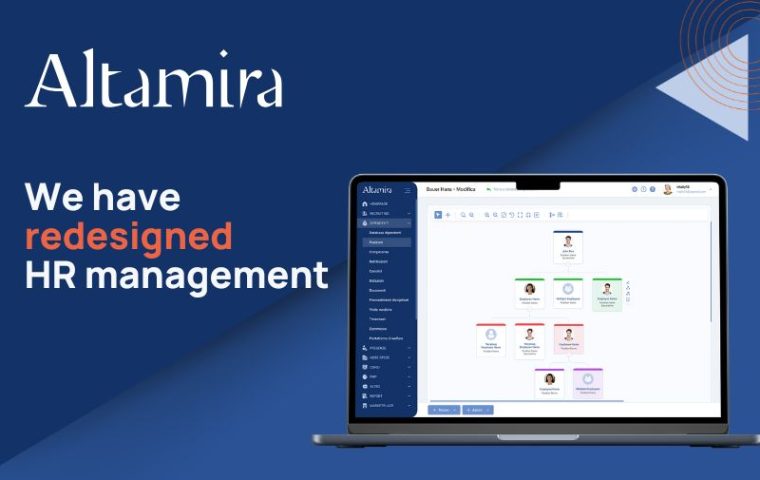Your company has a very high turnover rate and this is causing problems for your business?
A high rate of staff turnover is a bit like having a fever.
It’s not a disease in itself, but a symptom of one, a clue that something in the “body” of the company is not working properly.
Most often, the ultimate cause behind a high turnover rate is an error in your strategy for the selection and retention of your staff.
In order for the “marriage” between a company and an employee to last for a long time, it requires effort on both sides. It’s reasonable to expect a certain “fidelity” on the part of your employee, provided you give them good reasons to stay for a long time and you avoid committing strategic errors.
Here are some of the most common such errors.
1. Mistaken selection
Even the most careful employee retention strategy is doomed to fail if we have already made the mistake of hiring a new employee who is not a good fit for the company’s values and working environment.
This is why it is essential that you should clearly convey the day-to-day atmosphere of the company to the candidate during the interview phase—but also through your employer branding activities on your Career Site, on corporate social media channels and elsewhere.
Otherwise, we run the risk of making them feel like a fish out of water from day one.
2. No onboarding strategy
For many companies, the process of welcoming and integrating a new employee is limited to nothing more than processing paperwork.
This is a major missed opportunity: the first few weeks of working are truly decisive for making the newcomer into a loyal part of the team. We can assign them a mentor, introduce them to colleagues, share with them our corporate values, clarify their expectations and goals, and ensure that this transition period is, if not a pleasant process, at the very least a painless one.
3. Unclear goals
Do your employees know exactly what is expected from them year after year, or are they too often left in the dark, unsure about the impact of their work on the company’s business?
Setting goals together for the year, or for six months, is a process of fundamental importance for any company, and it is certain to give you a good return on the time invested.
4. The absence of career paths and opportunities
How long would you stay with a company that doesn’t offer you any opportunities for career advancement? Probably no more than a few years.
If a company wants to have motivated and loyal employees, it must guarantee ample opportunities for professional growth within it, and do so in a clear and transparent manner. Otherwise, the best talent will eventually seek other firms where they would be able to unleash their full potential and put the experience they’ve accumulated over the years to good use.
5. Not enough attention paid to employee benefits
Many articles and statistics have shown that benefits can have a greater positive effect on the rate of retention of employees than the salary level, at the exact same cost to the company.
There are an infinite variety of benefits that you could offer to your employees, and some of them come at no extra cost.
6. No training plan
A valuable employee feels the need to cultivate their skills and knowledge in order to remain competitive in their field. A company that doesn’t offer in-house training, or doesn’t offer support for their employees to attend professional courses, Executive Master’s courses and so on, risks rapidly losing its skilled human resources that are essential for its competitive edge. Add to that the fact that, most likely, these skilled individuals will be picked up by its competitors.
7. No bonuses
Bonuses tied to employee performance are a staple for some jobs, such as that of sales representative, but you can apply the same principle to other types of positions and get excellent results in terms of increasing employee retention. If the quality of an employee’s work is rewarded with something extra, that is a great additional reason to be satisfied with the company they’re working for.
8. Little flexibility
Without needing to become a pioneer of Smart Working—a mode of working that doesn’t fit in every context—a company can significantly increase its ability to retain its employees by avoiding any unnecessary rigidity, for example regarding working times, the dress code or internal procedures.
9. Micromanagement
All workers have a desire to grow professionally and to take on more responsibilities. If the managers of the company regularly engage in micromanagement, thus stifling their ambitions, it’s normal for these employees to begin to consider the possibility of a change of venue.
10. Inadequate salaries
The salary is certainly an important element in your employee retention strategy, although it is rarely decisive for companies that offer excellent benefit packages and engagement for their staff. Do some competitive benchmarking to make sure your company is offering competitive wages, and make changes where necessary.
11. Ignoring feedback
There is nothing more frustrating for an employee than to realize their opinion is being disregarded when it comes to corporate decisions, even if they have all the requisite credentials to participate in the discussion process.
To improve employee retention, it’s not enough just to listen to the ideas of our employees: we must also show that we have been receptive to the best ones, and put them into practice.
12. An antiquated evaluation system
An evaluation system can be very helpful for maintaining motivation and employee satisfaction to a high level. However, if you’ve set it up as a rigid process that is non-transparent and rarely undertaken, it can prove to be a double-edged sword. If the system requires only that a manager fill in an evaluation sheet for the employee at the end of the year, without the latter having any input in the matter, this will inevitably generate discontent. Fortunately, today it has become very easy to overcome the limitations of the traditional assessment forms.
13. No policy for increasing employee engagement
If your company doesn’t practice any form of employee engagement activities, not only will its rate of retention suffer, but employee productivity will go down as well. There is a virtually endless list of initiatives you can organize to better engage your employees: team-building exercises, lunches, dinners, evenings out with colleagues, investments in training courses, work/life balance, aspects of Smart Working and so on. Each of these will have a positive impact on employee retention. Your employees spend so many hours of their day at your company, so it is natural that they will prefer a more engaging and enjoyable environment.
14. Technological backwardness
In Italian companies, millennials are becoming an ever-larger share of the workforce. For this generation of workers—as well as for many professionals who belong to previous generations—it is simply a must to have modern and effective tools at their disposal (both in terms of software and hardware). For such workers, not having a self-service system for the management of HR processes is as befuddling as having to deal with applications that are not optimized for mobile devices.
Copyright: ©Sergey Nivens/Fotolia.














